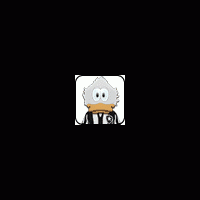Pesan: 86
Bahasa: English
orthohawk (Tunjukkan profil) 3 Februari 2011 17.57.21

English (native), learned Spanish in school have had the good fortune to keep up with it lo these many years, learned Russian in my early 20s; alas it has faded to the point where I may as well take a class again. And of course Esperanto. I can read it very well, but my conversational ability is severely hampered by my lack of interaction with other parolantoj. I can "smatter" in French and German and somewhat in Italian. Can understand Portuguese to some extent only because of its similarity to Spanish. I'd love to learn some Yiddish, if only to tick off my roommate who is a bit of an anti-Semite and considers it to be merely "trash German" (his words). Feh. He's a yutz sometimes.
CrisJr25 (Tunjukkan profil) 3 Februari 2011 18.23.33
So... it's
Portuguese, English, Esperanto, Spanish, German and Japanese, but I don't think it's enough.

erinja (Tunjukkan profil) 3 Februari 2011 18.38.48
orthohawk: I'd love to learn some Yiddish, if only to tick off my roommate who is a bit of an anti-Semite and considers it to be merely "trash German" (his words).I knew someone in college who expressed this opinion to me. I suppose by this reasoning, English is nothing but "trash Dutch".
How quick certain people can be to disparage minority languages. It's a shame.
It's fitting that in Yiddish we were given the saying "אַ שפּראַך איז אַ דיאַלעקט מיט אַן אַרמיי און פֿלאָט" (a ŝpraĥ iz a dialekt mit an armej un flot) - A language is a dialect with an army and navy.
darkweasel (Tunjukkan profil) 3 Februari 2011 18.49.33
erinja:This sentence (if written in Latin letters) shows very well how similar Yiddish and German are. The sentence would be in German: Eine Sprache ist ein Dialekt mit einer Armee und Flotte (pronounce: /ajne ŝpraĥe ist ajn dialékt mit ajna armé unt flote/).
It's fitting that in Yiddish we were given the saying "אַ שפּראַך איז אַ דיאַלעקט מיט אַן אַרמיי און פֿלאָט" (a ŝpraĥ iz a dialekt mit an armej un flot) - A language is a dialect with an army and navy.
And the biggest difference - the indefinite articles - are no problem for speakers of some dialects of German. In my (Viennese) home dialect, we also use a (plus declination endings) as an indefinite article. Thus, the sentence would be pronounced approximately /a ŝproĥ is a dialékt mit ana armé und flotn/, which is even closer to Yiddish.
I know that I'm off-topic, but since for example ceigered seems quite interested in the dialects of German, I hope you don't mind me posting this.

Ironchef (Tunjukkan profil) 3 Februari 2011 19.53.32
I consider my German "usable" and my French "passable"...
I was forced to attend two years of Latin classes which were a waste of everyone's time because nobody else wanted to learn and the teacher was too 2nd Century to deal with them.
I left school and immediately took 3 years of Dutch evening classes; and since 2007 I've been learning Esperanto. Like our friend, Ceigered, I've also dabbled in many languages less formally including several "constructed languages"; even some of my own devising.
I wish I had the time/patience/brains to learn Welsh, Romanian and Mandarin. Maybe one day.
erinja (Tunjukkan profil) 3 Februari 2011 20.27.26
However, Yiddish can rapidly become much more foreign to German speakers when Hebrew-origin and Slavic-origin words are used. Depending on the context and the speaker, you may see many more Hebrew words or many more Slavic words, even in very basic sentences. Yiddish word order can also differ significantly from German, though there are surface similarities.
------
I have done a very little Spanish study, but I wouldn't say that I speak Spanish. However, as a lernu team member, I am one of the people responsible for replying to user questions, comments, and complaints. That frequently involves going into the translation system and fixing a typo or a grammatical error. Therefore you'll see my name in the translation system for Spanish, Russian, Dutch, German, etc., because I've corrected a translation according to a user comment.
danielcg (Tunjukkan profil) 3 Februari 2011 20.44.28
I speak three languages, which I learnt in this order: Spanish, English and Esperanto. Being trilingual is usually seen as something worth of praise, but here in Lernu it falls miserably below the average.
Strictly speaking, I have not finished learning any of them, though I can use them all to communicate with other people.
Strange as it may seem, objectively my mothertongue Spanish was the most difficult to learn. I required six full years of whole immersion in the language, 24x7, just to acquire a childish, oral only, use of it, barely enough to enter the primary school. Don't you think we tend to minimize the difficulty of learning our own native language?
My second language, English, I studied during 9 years, 2-3 hours a week + homework. My reading and writing abilities are pretty good though of course far from perfect; my oral use (active and passive) is not so good but it is probably better than the average of those of my fellow citizens who claim to speak English. Nevertheless, anyone who hears my spoken English will notice at first glance that I am not a native speaker.
Esperanto I learnt during a bit less than a year, 1-2 hours a week, with minimal homework. The usual aseveration that Esperanto is 10 times easier than national languages has proved to be right in my case. My Esperanto level is at least as good as my English one, but without any shame for not seeming to be a native speaker. ;-
More than three decades have passed since I learnt both languages, and of course I have been practising them since then, specially in written form. As the saying goes, "practice makes perfect... or more realistically, less imperfect."
When coming from the pen of a good writer or the tongue of a good speaker, I like all these three languages very much, but Esperanto has a special place in my heart.
Regards,
Daniel
Darkmaster127:I'm just curious how many languages people here speak, what order you learnt them in, how long it took you to learn them, etc.
Personally I am a native English speaker. I tried learning French when i was around 10 from my Grandparents, but never found it interesting, was forced into attempting to learn it again for 3 years at secondary school. I could understand it, but only because i could pick out some words and then guess the rest. I could never make my own sentences with it.
I have spent the past 3-4 months learning Esperanto. Whilst nowhere near as fluent in it as English and still unable to type/write/speak without stopping continuously to look up words and think how to phrase it, i already prefer it to English, and hope in the future to become as good as a 'Native' speaker in it.
Sorry for rambling a bit there..... I tend to do that. So when/how did you learn your languages?
darkweasel (Tunjukkan profil) 3 Februari 2011 20.51.28
danielcg:I have not finished learning any of themYou've never finished learning any language. There's always something new to learn.
erinja:I have long noticed that Austrian German seemed to be the German that was phonetically closest to Yiddish.Note that you mean the Austro-Bavarian dialect, not Austrian Standard German, just to clear up any confusion.
danielcg (Tunjukkan profil) 3 Februari 2011 21.01.43
Regards,
Daniel
darkweasel:danielcg:I have not finished learning any of themYou've never finished learning any language. There's always something new to learn.
biguglydave (Tunjukkan profil) 3 Februari 2011 21.52.02
I had another intense experience with a fairly obscure language; Lakhota. I used to teach at a mid-western University. A native-American colleague talked me into taking a year of his Lakhota language class. I'm hardly fluent, but it was fascinating and the movie "Dances With Wolves" makes a lot more sense now!
Chinese is next - I started a class at a local community college last semester. I'm just a beginner, but the spoken part reminds me a lot of Esperanto. In the meantime, 祝你新年快乐! (zhu ni xin nian kuai le), I wish you all a Happy Chinese New Year!





